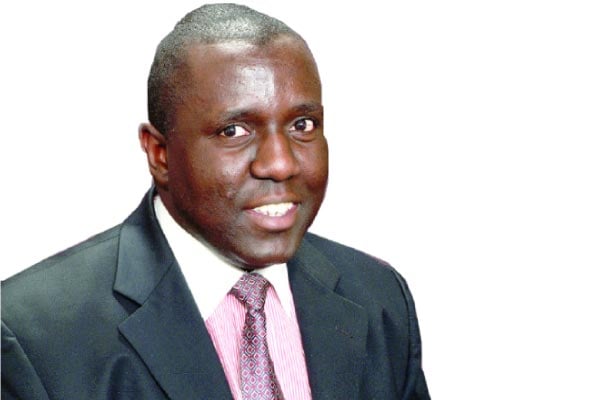Prime
The other NSSF: A more nuanced version

Author: Mr Karoli Ssemogerere is an Attorney-at-Law and an Advocate.
What you need to know:
- The politics of NSSF has been another story. In the last decade, the President transferred both a cabinet minister and later a state minister from the Treasury to Labour and then at the same time transferred responsibility for regulation of NSSF from Labour to Treasury.
By some measures, the National Social Security Fund (NSSF) is a success story. NSSF is backed by a strong law, employers and employees each contribute 10 percent and 5 percent of gross pay to the Fund.
In flush times, NSSF has paid its members a very healthy annual return. A younger base, workers enter the workforce at age 25, and contribute for 30 years. NSSF has done some good modeling and avails very good retail investment information to its members.
A member can access their savings balance on the phone, if they are self-contributing, they can adjust their rates of investment to meet their retirement goals.
NSSF has survived, sometimes by a whisker, the actual realities of operating in Uganda. It has spread out the bacon, with office buildings, investments in other urban centres, Jinja, Mbarara and others. For a long time, Workers House was the city’s most prestigious office building. Then NSSF got more ambitious, becoming the financial anchor by which banks maintain liquidity without raising alarm at the Central Bank.
NSSF fixed deposits with up and coming banks, invested in treasury bills helping the government pay its bills etc. One of these transactions where NSSF withdrew funds two days from its maturity date, is a reason its most ambitious and by some measures most successful Managing Director David Jamwa is serving a 10-year sentence in Luzira.
The politics of NSSF has been another story. In the last decade, the President transferred both a cabinet minister and later a state minister from the Treasury to Labour and then at the same time transferred responsibility for regulation of NSSF from Labour to Treasury. Worker groups never forgot this slight. The Ministry of Labour is one of the “dry” ministries in charge of children, persons with disabilities, culture, labour and industrial relations. Its principal enforcement scheme the District Labour Offices all over the country are at a 30 percent manning rate, just 40 Labour Officers out of 146 districts even though these are employed by Local Governments have full-time Labour Officers. Where they exist, they are often co-opted by large employers into listening posts, see no harm.
Then Covid happened. But before Covid, the economy started softening around 2013. Mid-term access was the outlet of this pressure. Many workers are unable to keep a single job for more than 10 years.
The pandemic struck in 2020, but the hardest year for most people was in 2021, after all their savings were exhausted. Lines quickly formed outside Workers House. Outside of Workers House all other non-government investments, securities both inside and outside Uganda performed very poorly.
In the meantime, NSSF management did not adjust to the new reality. It did not brace itself for more scrutiny. The NSSF Amendment Act corrected what workers groups thought was an injustice meted out to them by the IMF by re-vesting some powers in the Minister of Labour. The Minister, a UPC Member of Parliament has had curtain raiser tours in the Ministry of Lands and Kampala Capital City. She has used her power to decline reappointing the symbolic head of the fund hiding behind Namunkekera economics.
In this conflagration, NSSF is the missing link in the long chain of poverty alleviation strategies pushed for decades. Entandikwa, Bonna Baggagawale, Emyooga etc., that fall like rain on dry sand. It’s never enough, NSSF on its own can’t solve the poverty problem in the country. Of course one may ask, why is NSSF investing in the Nairobi Stock Exchange where listed companies are fleeing the exchange? The answer is the same as real estate agents in Nairobi who prefer Ugandan clients for bookings. They arrive with cash, don’t negotiate, pay and leave.
These are the sentiments the Shs 15.5 trillion fund’s managing director is facing.
An outsize fund in a poorly performing economy. USD 4.4 billion is respectable but small in the language of pension funds. In Uganda, we live life a little, carefully and quietly. That’s how we have safely excluded ourselves from the middle income and other prosperity dreams.
Mr Ssemogerere is an Attorney-At-Law and an Advocate.




